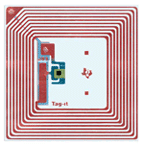Case o' The Week: Get out of the car! Get into the car! Williams, the Fourth, and car passengers

The last Case o' The Week memo discussed Judge Betty Fletcher. This week's case is written by her replacement in the Ninth, Judge Richard Tallman (left). In United States v. Williams, __ F.3d __, 2005 WL 1950006 (9th Cir. Aug. 16, 2005), the Circuit holds that it does not violate the Fourth Amendment for a cop to order a passenger back into a car. Decision available here. Because the Supreme Court has already held an officer could order a passenger out of the car, the general rule is that a cop can order a passenger in or out with no constitutional limitation . . . .
Players: A hard-fought case out of Oakland by ND Cal AFPD Jerome Matthews.
Facts: An Oakland cop stopped a car for not having a "white light illuminating the license plate." Id. at *1. Williams was a passenger and got out - and was immediately ordered back in the car. Id. The driver was arrested for driving without an ID, and the officer heard a "thud" and found a gun six feet from the car. Id. Williams was charged with being a felon in possession, and moved to suppress. Id. at *2.
Issue(s): "[W]hether an officer may order a passenger who voluntarily gets out of a lawfully stopped vehicle back into the automobile without violating the passenger’s Fourth Amendment rights." Id. at *1 (emphasis in original).
Held: "In upholding the officer’s discretion to control the situation as he or she deems necessary to ensure the safety of the officer and the vehicle occupants, we answer in the affirmative . . . ." Id. "In the final calculus, we think it best left to the discretion of the officers in the field who confront myriad circumstances we can only begin to imagine from the relative safety of our chambers. We hold that under the Fourth Amendment it is reasonable for an officer to order a passenger back into an automobile that he voluntarily exited because the concerns for officer safety originally announced in Wilson, and specifically the need for officers to exercise control over individuals encountered during a traffic stop, outweigh the marginal intrusion on the passenger’s liberty interest." Id. at *4.
Of Note: AFPD Jerome Williams forcefully – and we think, persuasively – argued that his case was distinct from previous authority permitting cops to order passengers out of the car. As Jerome pointed out, the rationale in those cases was that a passenger could make furtive, hidden, and dangerous, movements inside of a car. Id. at *3. Writing for the Court, Judge Tallman rejected this argument, concluding that officer safety outweighed the "minimal intrusion" on the passenger’s liberty interest. Id. at *4.
How to Use: Williams is unusual in several respects: the officer was alone, it was in the early morning hours, and the driver did not immediately pull over when the cop activated his lights. Id. at *1. Although Judge Tallman certainly uses broad, permissive language in his decision, one could argue that it was reasonable in the particular circumstances of Williams to order the passenger back in the car. By contrast, if multiple officers stop an immediately-compliant driver in broad daylight, it may be possible to distinguish Williams with the argument that the greater passenger liberty interests, id. at *2, outweigh any possible officer safety concerns.
For Further Reading -- RFID Chips: It has not been a great decade for the Fourth Amendment rights and cars. Things may get worse with new technology, Radio Frequency Identification (RFID), which Br
 itain is now considering building into car license plates. See article here. Information captured from that chip could reveal, for example, if a driver’s license has expired. With Williams on the books, cops could then order passengers in – or out – of the car after making an RFID stop. The State of California now has legislation pending to limit RFID chips. See article here.
itain is now considering building into car license plates. See article here. Information captured from that chip could reveal, for example, if a driver’s license has expired. With Williams on the books, cops could then order passengers in – or out – of the car after making an RFID stop. The State of California now has legislation pending to limit RFID chips. See article here.Steven Kalar, Senior Litigator, N.D. Cal. FPD. Website available at www.ndcalfpd.org

0 Comments:
Post a Comment
<< Home